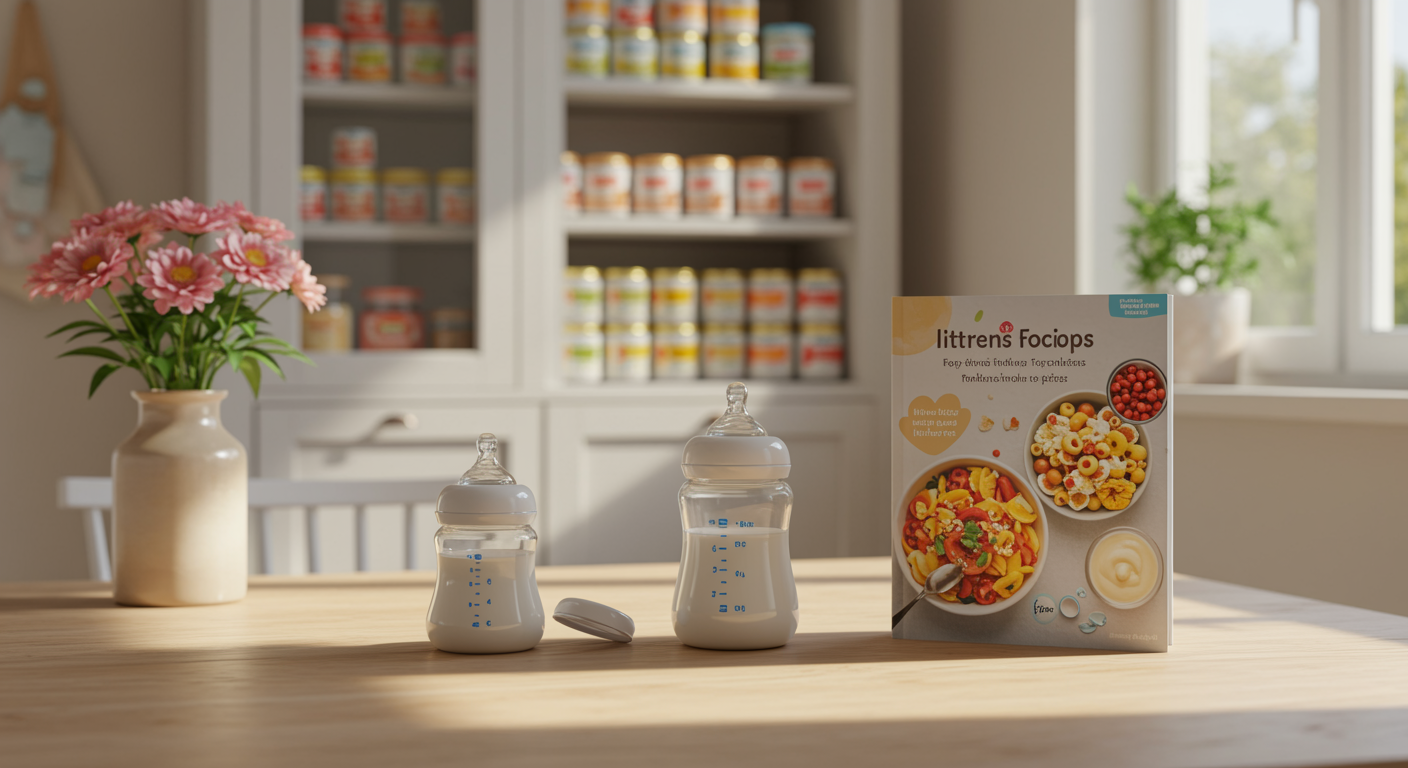Disclaimer: The information and experiences shared in this article are for educational and sharing purposes and do not replace the advice of a qualified professional. Always consult a pediatrician or specialist for questions related to your baby’s health and well-being.
Introduction
For first-time moms, the decision to formula feed can come with a mix of emotions—relief, uncertainty, and sometimes guilt. However, formula feeding is a valid and healthy choice for many families. This guide is designed to empower you with the knowledge and confidence to make informed decisions about formula feeding, free from judgment or guilt. From selecting the right formula to preparing and storing it safely, we’ll cover everything you need to know to ensure your baby thrives.
Understanding Formula Feeding
What Is Formula Feeding?
Formula feeding involves providing your baby with a nutritionally complete substitute for breast milk. Infant formulas are carefully regulated to meet the dietary needs of babies, ensuring they receive essential vitamins, minerals, and nutrients for healthy growth.
Why Choose Formula Feeding?
There are many reasons parents choose formula feeding, including medical conditions, work schedules, or personal preferences. It’s important to remember that every family’s situation is unique, and what works for one may not work for another. Formula feeding offers flexibility, allows other caregivers to participate in feeding, and ensures your baby gets the nutrition they need.
Choosing the Right Formula
Types of Infant Formula
- Cow’s Milk-Based Formula: The most common type, suitable for most babies.
- Soy-Based Formula: Ideal for babies with lactose intolerance or milk protein allergies.
- Hypoallergenic Formula: Designed for babies with severe allergies or digestive issues.
- Specialized Formulas: For premature babies or those with specific medical needs.
Factors to Consider
- Nutritional Needs: Consult your pediatrician to determine the best formula for your baby’s age and health.
- Allergies and Sensitivities: Watch for signs of intolerance, such as rashes, vomiting, or diarrhea.
- Convenience: Ready-to-feed formulas are convenient but more expensive, while powdered formulas are cost-effective and have a longer shelf life.
Preparing Formula Safely
Step-by-Step Preparation
- Wash Your Hands: Always start with clean hands to prevent contamination.
- Sterilize Equipment: Clean bottles, nipples, and other feeding tools thoroughly.
- Measure Correctly: Follow the formula packaging instructions for the correct water-to-powder ratio.
- Mix Thoroughly: Shake or stir until the formula is fully dissolved.
- Check Temperature: Test the formula on your wrist to ensure it’s lukewarm, not hot.
Storing Formula
- Prepared Formula: Use within 2 hours if left at room temperature or refrigerate and use within 24 hours.
- Opened Containers: Follow the manufacturer’s guidelines for storage and discard unused formula after the recommended period.
Feeding Your Baby
Recognizing Hunger Cues
Babies often show signs of hunger, such as rooting, sucking on their hands, or making sucking noises. Responding to these cues promptly helps establish a feeding routine.
Feeding Tips
- Hold Your Baby Comfortably: Maintain eye contact to create a bonding experience.
- Pace the Feeding: Allow your baby to take breaks to avoid overfeeding.
- Burp Regularly: Burp your baby midway and after feeding to release trapped air.
Addressing Common Concerns
Is Formula Feeding as Nutritious as Breastfeeding?
Yes, infant formulas are designed to mimic the nutritional profile of breast milk as closely as possible. While breast milk offers unique antibodies, formula provides complete nutrition for your baby’s growth and development.
How Do I Handle Guilt or Judgment?
Remember, your choice to formula feed is valid and based on what’s best for your family. Surround yourself with supportive individuals and focus on the love and care you provide to your baby.
Conclusion
Formula feeding is a practical and nourishing option for many families. By understanding your baby’s needs, choosing the right formula, and following safe preparation practices, you can ensure your baby thrives. Let go of guilt and embrace the freedom to make the best decision for your family. Parenthood is a journey filled with choices, and every step you take with love and care is the right one.
